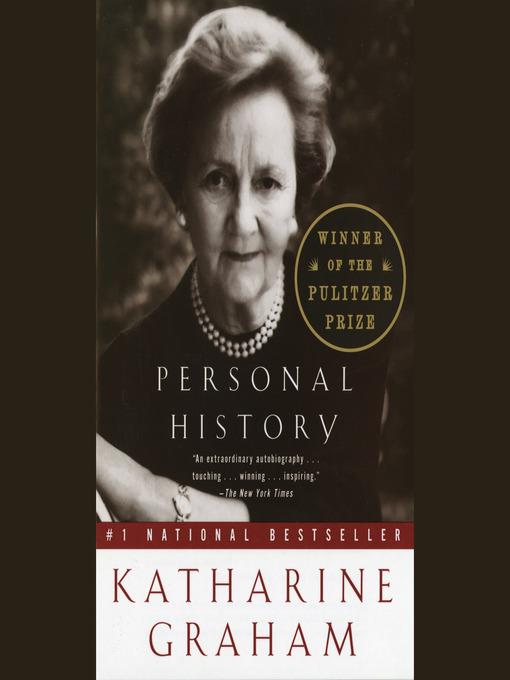
Personal History
کتاب های مرتبط
- اطلاعات
- نقد و بررسی
- دیدگاه کاربران
نقد و بررسی

Starred review from February 3, 1997
In 1963, Graham took over as publisher of the Washington Post as a classic grieving widow. Her husband, Phil, had shot himself at their country estate, defeated in a prolonged battle with manic depression. Since then, Graham's life has been an amazing ride as she "moved forward blindly and mindlessly into a new and unknown life" to become the tough chief executive who, during Watergate, looked the President of the United States in the eye and didn't blink. She ended up as chairman and CEO of the Washington Post Media company, whose possessions included newspapers, magazines and TV stations. She makes a vivid and persuasive case for why it was so daunting for a woman of her generation to become, in the eyes of many, the most powerful woman in America-a designation she hated. She took over the newspaper to preserve it for her children and came to love it as a publication and as a business. She now sees that her management skills were lacking (financier Warren Buffett gave her a crash course in acquisitions and became a major shareholder and close friend), but she has nothing but pride and pleasure in the newspaper that she led from obscurity to world renown. The first half of her story centers around life with Phil, the second on three pivotal events at the Post: the publication of the Pentagon Papers, the Watergate scandal and the prolonged pressman's strike of 1975. She lovingly attributes much of the Post's success to editor Benjamin C. Bradlee. Her narrative is at times uneven, swinging from passages that sound almost like "what I did last summer" to amazingly detailed insider accounts of moments of national crisis. Household names dot every page, woven in with the lives of her four children, one of whom, Donald, now runs both the paper and the company. Graham is frank but not gossipy, self-critical but not falsely modest. She presents her "personal history" with quiet courage and considerable wit. Photos. 200,000 first printing; Random House audio.

This Pulitzer Prize-winning autobiography is not for the impatient or faint-hearted. Katherine Graham makes extensive use of detail through the painstaking recounting of conversation and reading of correspondence. Francis Cassidy's performance reinforces the impression that, while Graham often denigrates her role and influence, she was never a woman to be underestimated or trifled with. Cassidy tells the story as one who knows it well, giving a restrained, somewhat detached reading consistent with the tenor of the writing; she allows subtleties of humor, frustration and rather tightly controlled emotions to come through in an appropriate manner. She ably captures the steely determination and thoughtful sense of purpose that underlie most of the events and experiences as Graham recounts them. Although the length is a bit daunting, the audio format works well. J.E.M. (c)AudioFile, Portland, Maine

























دیدگاه کاربران